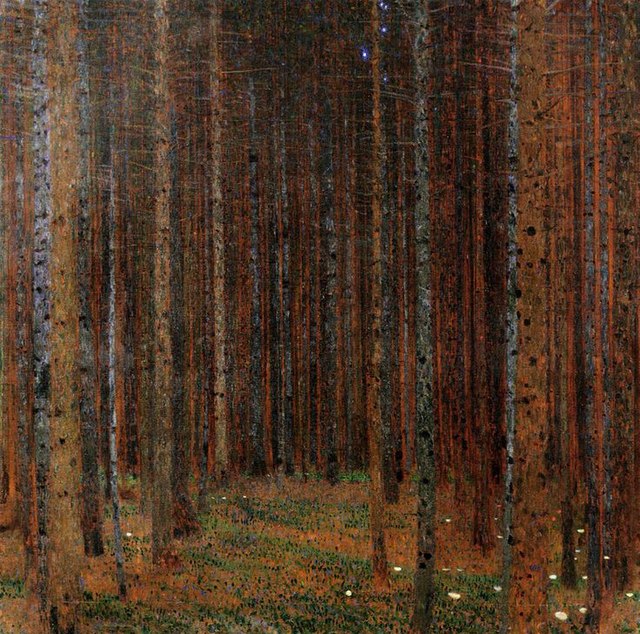
Gustav Klimt, Tannenwald, 1901. Courtesy of Wikimedia Commons, public domain.
Today we are publishing a previously unpublished poem by the poet, critic, and editor Delmore Schwartz. Schwartz was hailed as a promising short story writer and poet in the generation that included Robert Lowell, Elizabeth Bishop, and John Berryman; a longtime editor at the Partisan Review, he was the youngest person ever to win the Bollingen Prize in 1959. (Some of Schwartz’s poems and letters were published in the Review in the eighties and nineties.) The poem below was discovered without a date, but is immediately recognizable for its recasting of Robert Frost’s “Stopping by Woods on a Snowy Evening” from an alcoholic’s perspective. This riff is made poignant by the fact that Schwartz’s later years were characterized by mental illness and alcoholism. He died, largely isolated, at the Chelsea Hotel in 1966.
Whose booze this is, I ought to think I know.
I bought it several weeks ago.
It stands there stolid on the shelf
Making me feel lower than low
Reminding me how I am low,
Making me think of Crane and Poe.
My fatlipped mouth must think it queer
To stop without a single beer,
To stop without a single beer
The deadest day I ever spent
In boredom and in self-contempt,
Sober, sour, discontent.
My fingers have begun to shake,
My nerves think there is some mistake.
The only other thought I think.
Is how I failed to be a rake,
A story which should take the cake.
The booze stares at me like a brink.
But I must wait for five, I think.
Long hours must pass, before I drink;
Long hours and slow, before I drink.
The Collected Poems of Delmore Schwartz will be published by Farrar, Straus and Giroux in April.
from The Paris Review https://ift.tt/G8rYP4n
Comments
Post a Comment